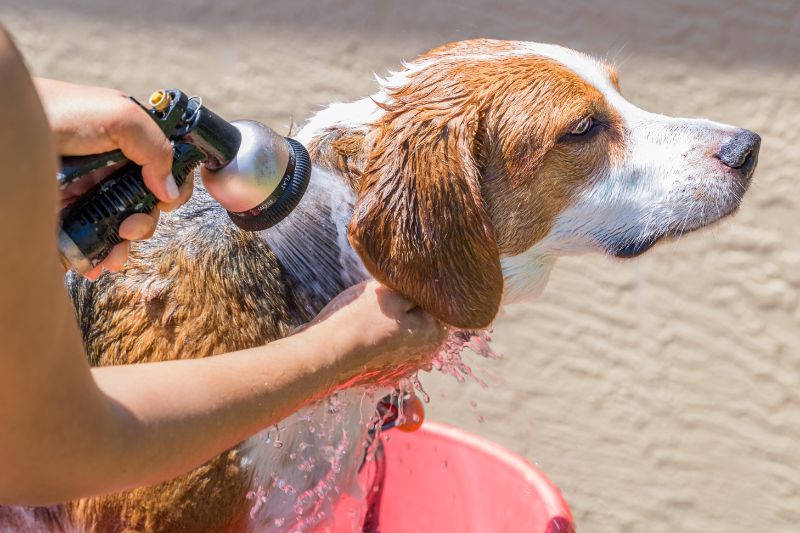My Dog Got Skunked, Now What?
“My dog got skunked, best day ever!” said no pet owner ever. When a pet encounters a skunk, the results are typically not fun. While most pets come through the meeting relatively unscathed, the smelly souvenir is definitely worth avoiding.
We humans know to turn back when a skunk offers its backside to us, but our pets aren’t always so intuitive. Thankfully, your expert staff at Sunrise Boulevard Animal Hospital knows how to help!
Understanding Skunk Spray
Skunks utilize their spray as a defense mechanism, so the best way to help your pet to avoid a face full of stink is to decrease the chances of a threatening encounter. You can:
- Use extra caution when letting your dog out in the early morning or early evening hours when skunks are most active
- Pay particular attention in the warmer months of the year when skunks tend to be around
- Teach your dog to leave wildlife alone
- Keep your yard clear of potential skunk habitats like wood piles, brush, and tree stumps
- Avoid feeding skunks inadvertently with food items like garbage, pet food, or compost in the yard
If a skunk feels threatened, it will often warn a potential attacker by presenting its tail and stomping its feet. The distinct black and white pattern is meant to get attention. If the warning is not headed, it will spray to protect itself. Skunks can spray very accurately and up to several feet.
Skunk spray is an oily substance produced in the anal glands of the skunk (boy are we thankful that dogs and cats can’t exert voluntary control of this organ!).
The yellow-brown secretion contains seven compounds that are primarily thiols or thioacetates. These volatile substances are very good at binding to the proteins in skin and are known to be quite smelly, especially in the presence of water.
What to Do If Your Pet is Skunked
If your pet (or you) has the unfortunate experience of being skunked, stay calm and consider the following:
- The first thing to do is to be sure everyone is okay. While most skunk encounters end in nothing more than a bad smell, ingestion of the spray or getting some of it in the eyes or nose can cause trouble. Skunks are also potential rabies carriers, so we should see your pet if there are any injuries from a scuffle.
- The next step is to prevent the spread of the smell. Keeping your pet outdoors is preferable, otherwise confine them to a small area – ideally without porous surfaces like carpet and upholstery that will hold smell.
- You will want to try to remove the smell from your pet. The key is to avoid water, break down the oils in the spray, and neutralize the smelly thiol compounds. There are de-skunking shampoos designed just for this purpose, however you probably don’t have one laying around.
In a pinch you can put together your own de-skunking concoction that is pretty darn effective. Make a mix of:
- 1 teaspoon dishwashing detergent to help break down oil (Dawn is suggested)
- 1 cup baking soda to help neutralize the odor
- 1 quart 3% hydrogen peroxide to help neutralize the odor
Apply this to your pet (wear gloves!) and rinse to remove the odor. It may take several passes. Use caution around the eyes and note that the peroxide may bleach dark fur.
If your pet is sprayed by a skunk, you will know pretty quickly. We hope now you know what to do, though, and who to call if you need help. Don’t hesitate to reach out to us.

